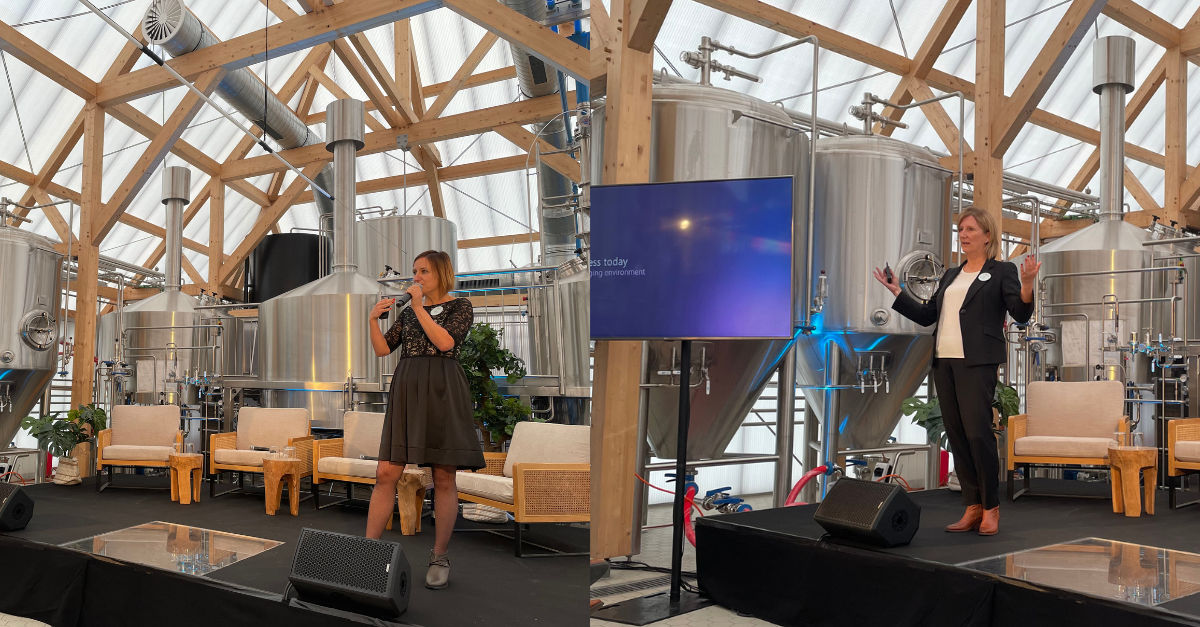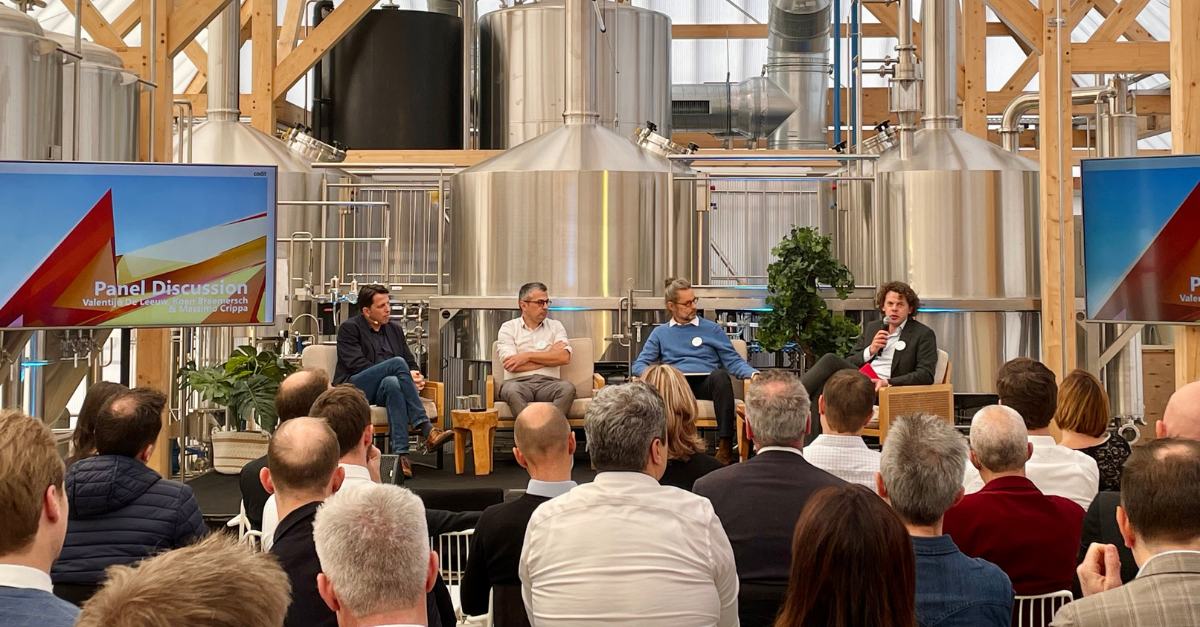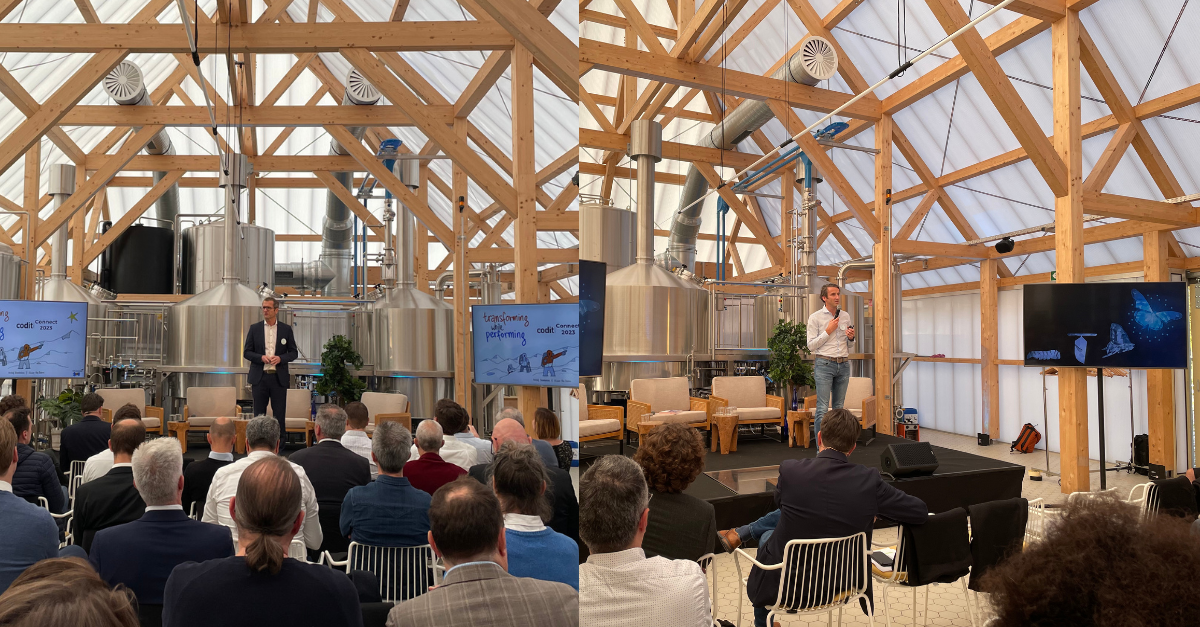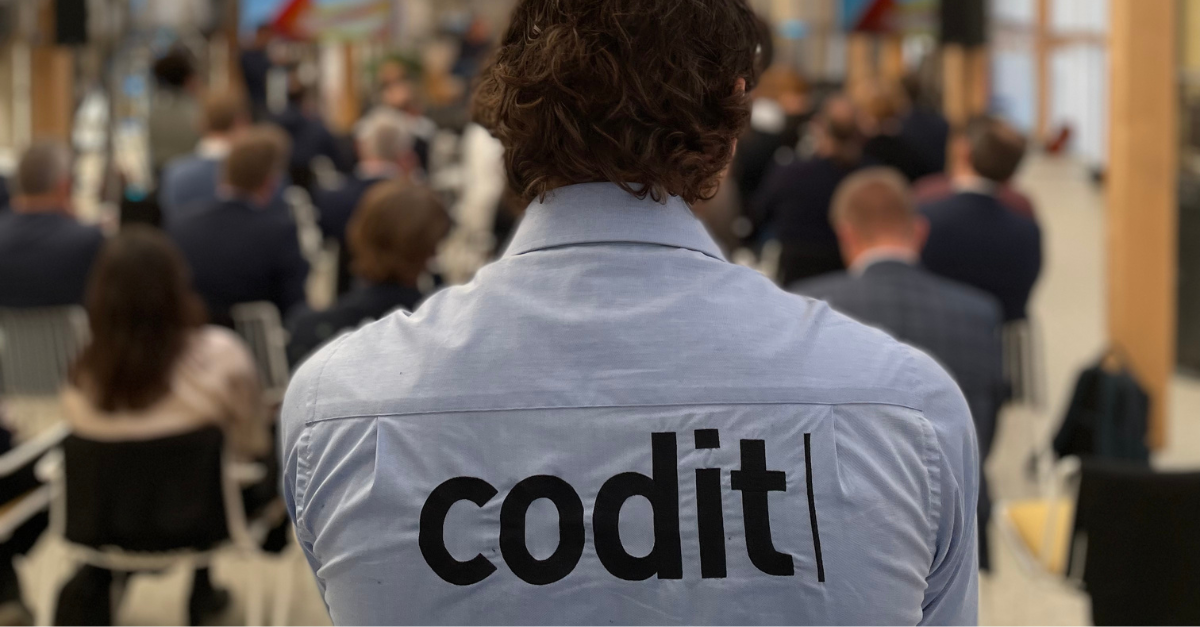To kick off this year’s talks, Leslie Cottenje, General Manager of Codit Belgium emphasized the importance of data in driving digital transformation and using AI to enhance customer experience.
The challenge of integrating data from various systems is often difficult due to outdated technology. While there has been a rapid evolution in technologies such as OpenAI and Chat GPT, there is still a need to address the current reality of data integration challenges. Companies can be proficient in collecting data, but the key is to become “data smart” for effective digital transformation. It is important to understand the ‘why’ behind investing in digital initiatives: to achieve meaningful business impact. Leslie highlighted the steps needed to progress towards data-driven maturity, including integrating the right data and modernizing outdated applications, and concluded by leaving it to the customers to share their experiences and insights on navigating their journey toward leveraging smart data for business success.

The Transformational Power of AI
Following this, Marijke Schroos, CEO of Microsoft Belux Marijke emphasized the real value of AI and its widespread impact, as well as Microsoft’s commitment to responsible and impactful AI adoption, showcasing its potential to drive positive change across various domains.
- Speaking about Microsoft’s journey over the past nine years, Marijke focused on culture, diversity, inclusion, and security. She acknowledged that progress didn’t happen overnight, citing a chatbot release in 2016 as an example of early challenges.
- With Generative AI having made significant strides in just a few months, it is important to demystify AI and understand its value in various business contexts. It is a business and technical tool, not a magic solution.
- There have been three key shifts in Europe: a focus on trust and security, addressing labor market shortages, and managing growing complexity. There is therefore a need for policy, especially concerning sensitive data. AI applications can have many usages, including boosting workplace productivity, enhancing services, and accelerating business models (such as fraud detection), as well as Microsoft’s AI capabilities in Microsoft 365 Co-Pilot, which demonstrates its potential to improve workflows, email management, and meeting summaries.
- In terms of concerns about regulation, Microsoft has a commitment to embracing and even being ahead of regulations, especially regarding data protection.
- AI can aid in education, change management, and digital literacy for different groups in society, including those who may face challenges like lack of access to electricity. There are also examples of successful cybersecurity training for individuals without prior experience in the field.
Panel Discussion
The panel discussion featured three experts from different tech-related industries: Koen Breemersch from NxtPort; Valentijn De Leeuw from Flanders Make; and Massimo Crippa, Codit’s Lead Architect. They discussed various aspects of technology, data, AI, and governance.
Technical Governance and Permission:
- There is a need for simplified architecture to meet evolving security requirements.
- Aligning technical governance with business objectives is crucial, along with defining constraints and setting standards for desired security levels.
- Technical governance is complex, and technology will play a part in supporting procedures, cost control, and compliance.
Cloud Adoption and Governance:
- Cloud adoption is essential, but smaller companies might face challenges due to resource limitations.
- Security levels should be tailored to specific initiatives, and recognizing individual security needs for each project is important.
- Cloud infrastructure should be built with a focus on user experience and value delivery to customers, starting with well-defined business objectives.
Data and AI in Industry:
- Data and the potential of AI is becoming increasingly important in industry. Challenges this brings up involve data quality, integration, and standardization.
- The standardization of data structures is enabling faster and more efficient connections in industry.
- There is potential for AI to automate security measures, relieving the burden on organizations.
Future of Technology:
- There is great potential for Generative AI and its integration into applications. The value delivery to users is important here.
- There is potential for standardization in instrumentation and controls for data collection to make an impact.
- The importance of security in the evolving tech landscape is critical.
To close, optimism was expressed about what the next five years could bring. The panelists expressed hope for a significant increase in Flemish industry GDP, with technology playing a major enabling role in this. The importance of finding good partners and establishing effective governance was also emphasized, as was a vision for a broader range of use cases on the platform, with minimal downtime for security reasons.

Transforming While Performing
Olivier Van Duüren, Transformer at Visual Senseformers, then spoke on finding a balance between transformation and performance, identifying three key patterns for success: the ability to observe and interpret the world, the willingness to undergo personal transformation, and the capacity to strike a balance between transformation and performance.
- It is important to stay curious and engaged with both internal and external developments. Personal transformation involves leading oneself before leading others. Five principles can be highlighted for personal growth, including the importance of keeping one’s ego in check, embracing change, and fostering a growth mindset.
- There is a difference between transforming and performing within an organization. You have to align your behavior and operations with organizational goals. Olivier discussed innovation strategies and the value of creating ecosystems, as well as the need for a culture that combines the stability of established companies with the agility of startups.
- The Q&A session addressed handling naysayers during transformation efforts and the role of visual elements in his company’s mission. Olivier highlighted the need to focus energy on engaging those who are open to change while ensuring that the vision and transformation efforts are visualized for maximum impact.

Stijn Degrieck, CEO Codit
Codit’s CEO Stijn Degrieck closed the event by providing a comprehensive overview of the transformative journey the company has undertaken over the past year. He highlighted three key triggers that prompted this transformation: feedback from their colleagues urging greater innovation, customer expectations for expert solutions, and Microsoft’s continuous push for cutting-edge technology adoption.
Stijn emphasized the ongoing nature of this transformation, underscoring that such shifts take time and perseverance. He also shared instances of Codit’s impactful work, including streamlining social security information exchange and developing cloud solutions to optimize data operations. Expressing a commitment to building platforms that have a lasting impact on businesses, Stijn discussed the importance of changing mindsets towards solutions that are dynamic and adaptable. Throughout his talk, he underscored the centrality of data in driving meaningful insights and the pivotal role of platforms like Microsoft in leveraging AI capabilities.
This year’s Codit Connect exemplified our dedication to reestablishing connections, fostering collaboration, and driving innovation. The focus on data-driven transformation, responsible AI adoption, and technical governance underscored the importance of staying at the forefront of technological advancements.
The day ended with a tasty selection of beers from the Hopspot microbrewery, and some engaging talks with attendees. Thank you to everyone who joined us!

Subscribe to our RSS feed